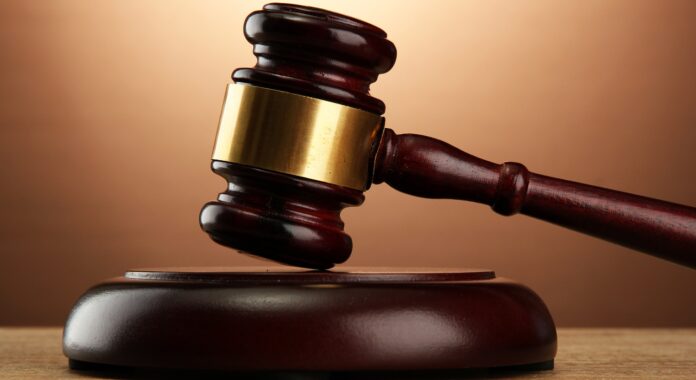The Federal High Court Abuja has fixed Oct. 15 to deliver judgment in a suit challenging the procedure adopted by President Mohammadu Buhari in the appointment of judges of the High Court of Federal Capital Territory, (FCT).
Justice Inyang Ekwo fixed the date on Wednesday after parties adopted their brief of argument and adumbrated on their submissions.
The plaintiff, Mr Oladimeji Ekengba is challenging the sending of the names of 11 nominees for appointment as judges of High Court of the FCT to the Senate for confirmation.
Ekengba, a legal practioner, listed the President, the Attorney- General of Federation and Minister of Justice, the Senate, the Senate President, the clerk of the Senate, Chief Justice of Nigeria and the National Judicial Council as respondents.
Ekengba prayed the court to hold that the procedure adopted by the president in forwarding the names of the 11 nominees for appointment as judges of the FCT High Court to the senate for confirmation was unconstitutional.
He urged the court to determine whether by virtue of the provisions of Section 256(2) of the 1999 Constitution, the senate had the power to appoint, screen, confirm persons recommended as judges of the FCT High Court.
He also prayed the court to determine whether by virtue of the provisions of
Section 256(2) of the 1999 Constitution, they can abdicate his duty and responsibilities to the senate for the appointment of persons as judges of the FCT High Court.
The plaintiff further prayed the court for a declaration that by virtue of the provisions of Section 256(2) of the 1999 Constitution, the senate lacked the powers to appoint, screen and confirm persons recommended as judges of the FCT High Court.
He also prayed the court to declare the purported appointment as unconstitutional, null and void.
Ekengba urged the court to hold that the appointment of the 11 new judges could not be subject to senate confirmation.
A counsel from the office of the AGF, Mr Tinuola Babalola in her submission, prayed the court to dismiss the suit for lacking in merit.
Babalola argued that the plaintiff had no locus standi (legal right) to institute the action.
Other respondents’ lawyers also raised objections to the suit insisting that the plaintiff lacked the locus standi to file it.
Meanwhile, the National Judicial Council asked the court to remove it’s name as a respondent in the suit on the grounds that it had not done anything wrong.
Court Fixes October 15 for Judgment in Suit Challenging Appointment of Judges
- Advertisement -
- Advertisement -
- Advertisement -
- Advertisement -
- Advertisement -

